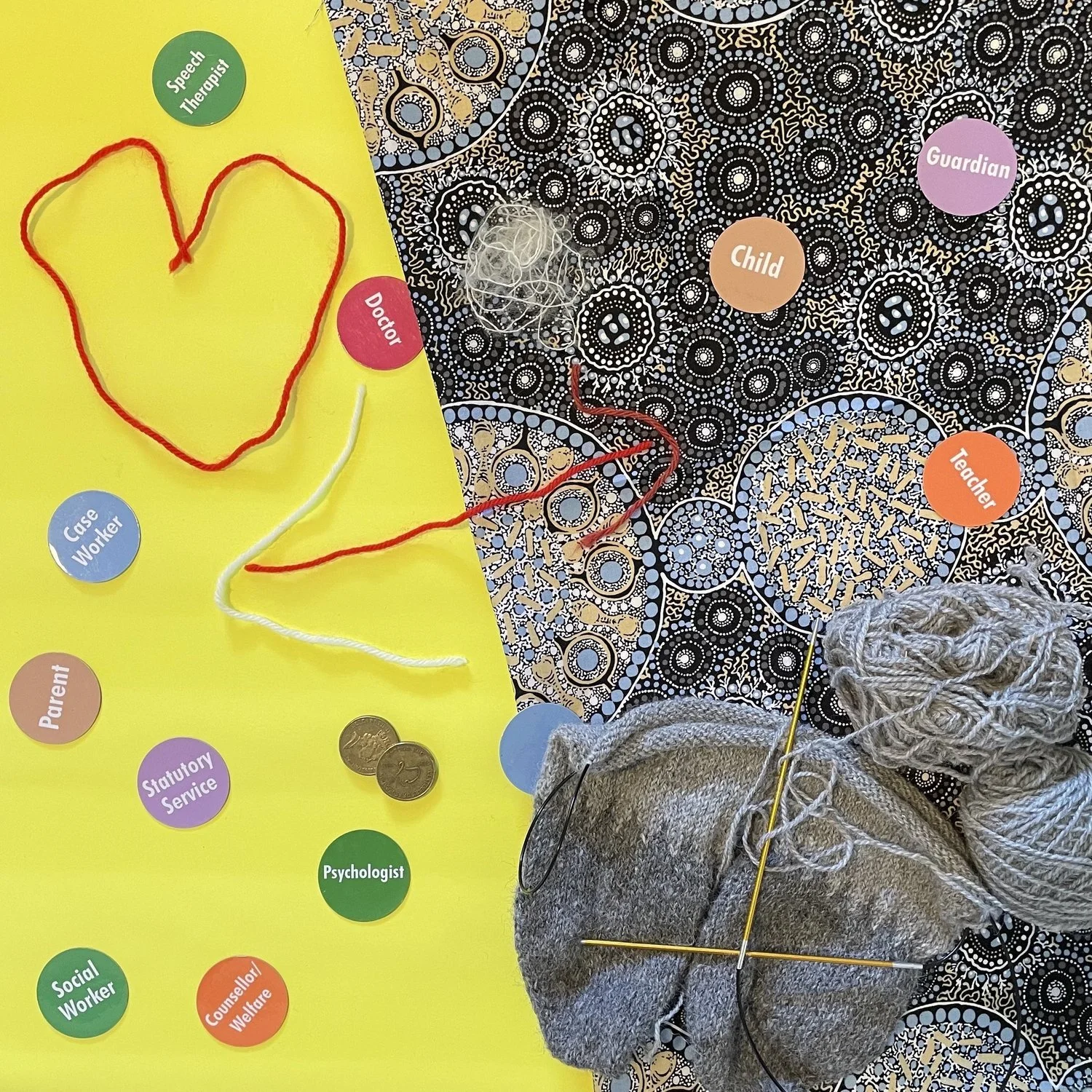Care
Pam (australia)
“Care’ is complex: relationship, action, cost, reciprocity, culture, power, and more.” This was a central concept in my PhD thesis, which was about the ways that parent-carers understood their relationships with complex formal/paid care systems.
Materials and representations:
Fabric, in an indigenous design. I'm not sure of the correct cultural representations, but in this exercise it leads me to think of community, human connection, the Milky Way (dreams, hopes, aspirations), and maybe weirdly, some of it looks a bit like cellular structures, which was relevant to the complex health conditions that affected the children of the participants in my study. It also represents heritage (many families in my study were affected by inherited conditions, but also culture and family were really important resources).
Fuzzy thread, rather tangled. Care is a fuzzy concept, not very neat, but can be soft and comforting.
Red heart. Red represents love, blood (family relationships, life)
Yarn scraps/arrow, white/brown, red connection: denotes reciprocity, and diversity
Dollar coins: Care is costly, financially, emotionally, and physically. Also, for the families in my study, the usual boundaries between paid/formal and unpaid/informal care also don't have the same relevance to their lived experience as they do for most people. Parents become experts, and "experts" become part of the family.
Discs. These are magnets I used for visual data production during interviews, to map service systems. One is unlabelled - these were flexible to allow people to customise to their own experience. Everyone's care system was unique.
Knitting. Knitting socks from a ball of yarn creates a new form. "Knitting" can be synonymous with coming together, with healing, and with a caring creativity. Socks are warm, and soft. Most importantly, knitting is active, and it is both a gift and a reward (just like care can be).

